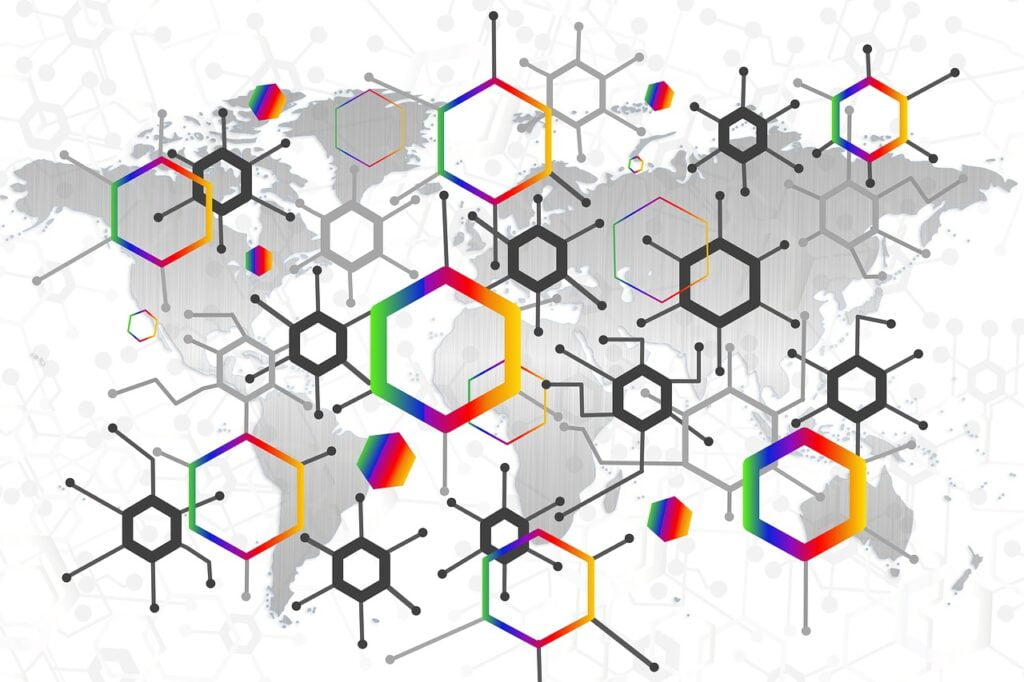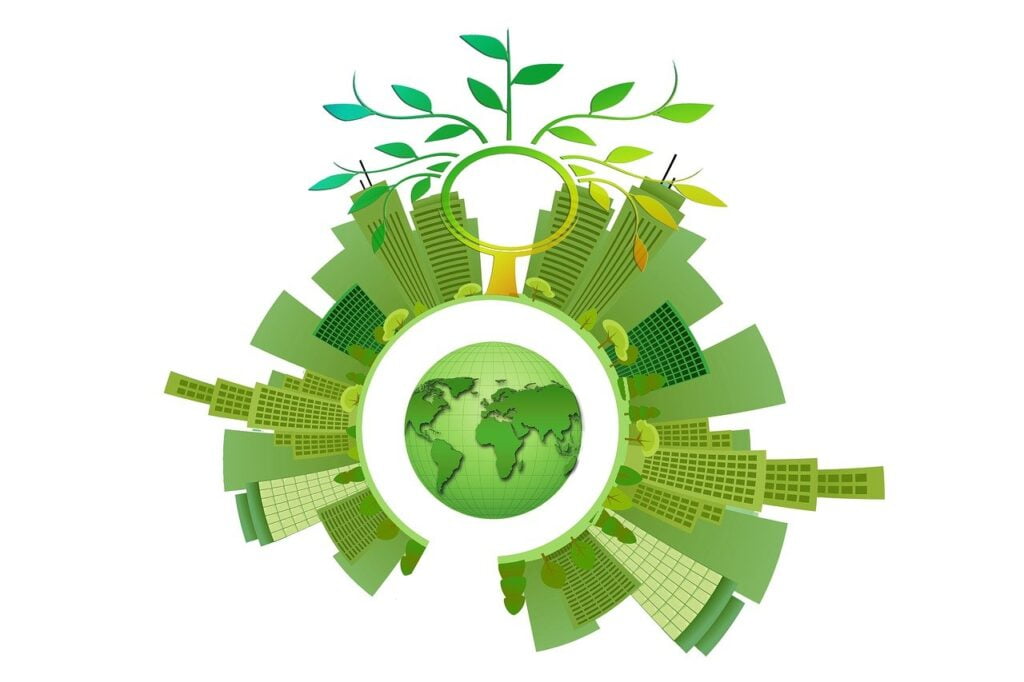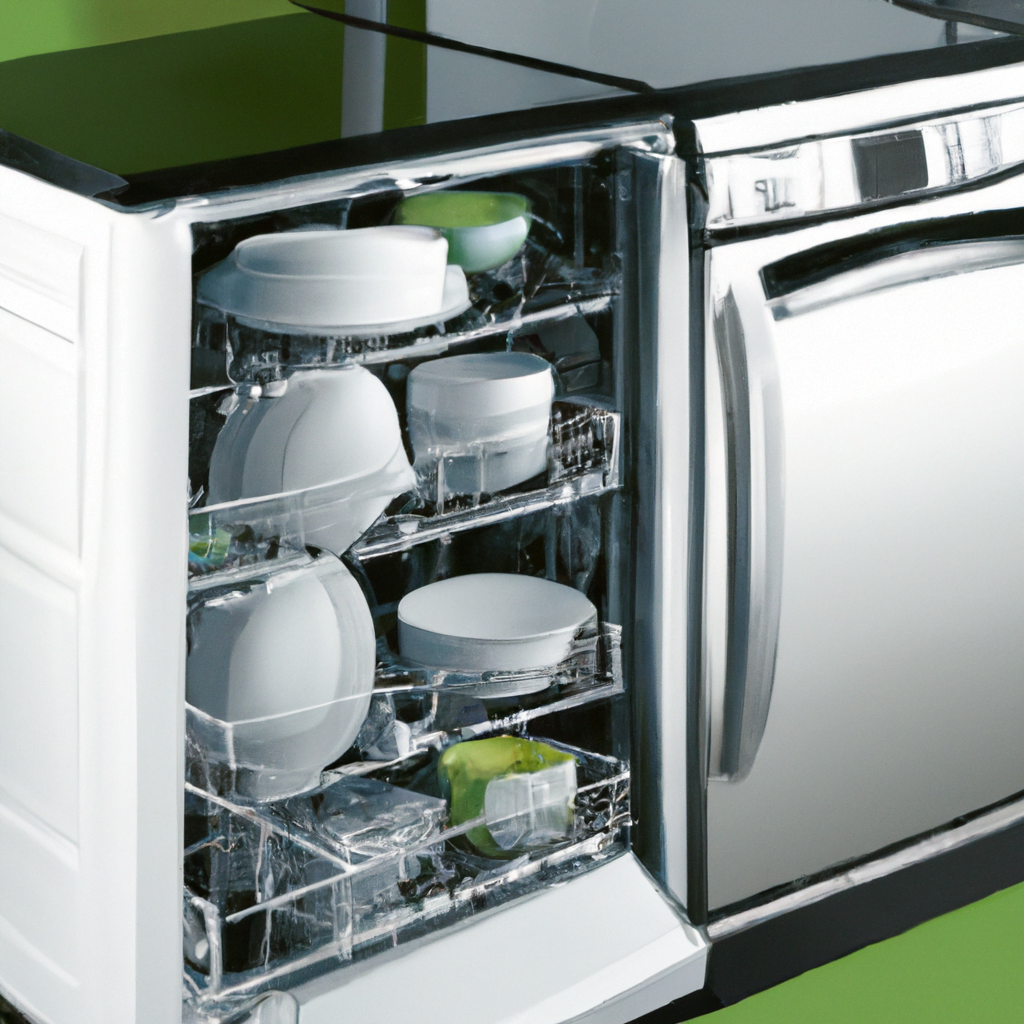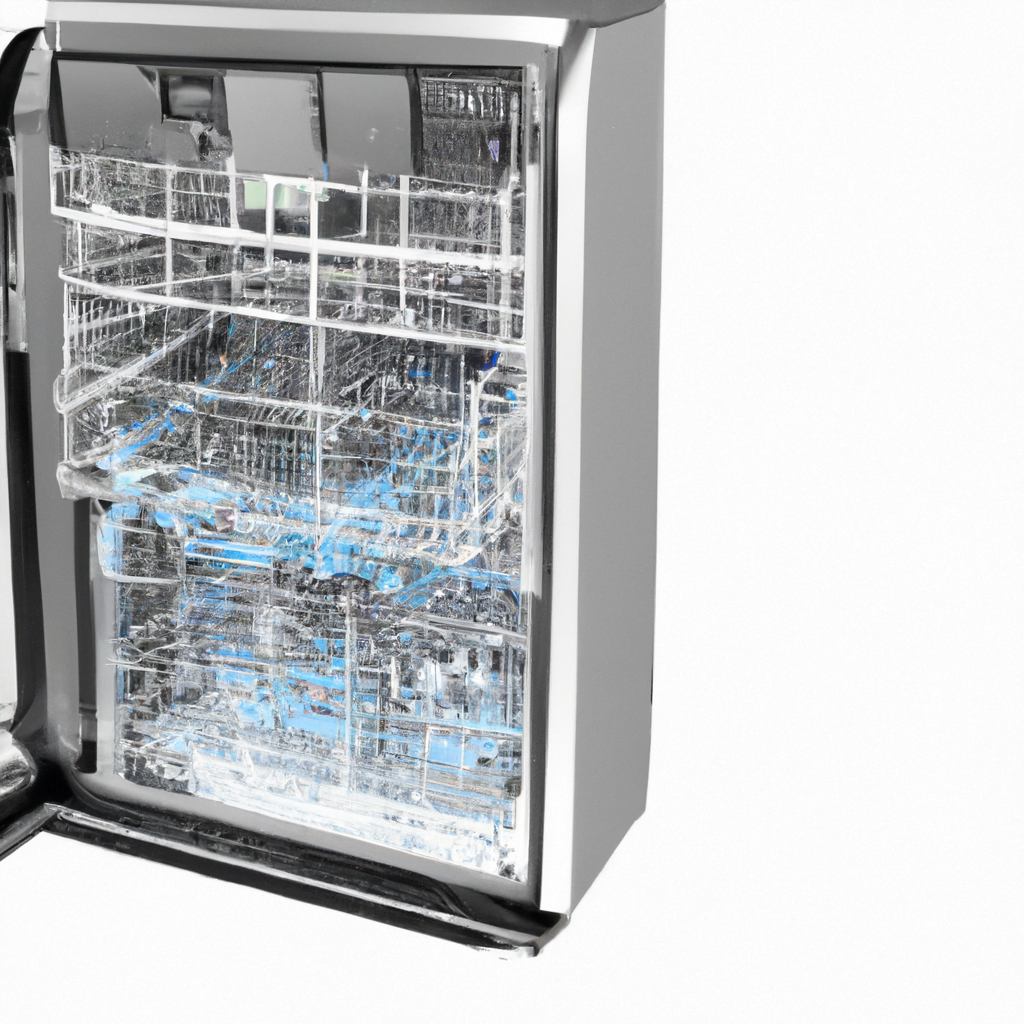Egypt has been making significant strides towards sustainability, particularly in the realm of energy efficiency. With the introduction of energy-efficient appliances, the country has taken a crucial step towards reducing its carbon footprint and promoting a greener future. This article explores the innovations in energy-saving within the Egyptian context and highlights the benefits of using energy-efficient appliances. By adopting these technologies, Egypt not only contributes to global efforts to combat climate change but also saves on energy costs, making it a win-win situation for both the environment and its people. So, let’s dive into the world of energy-efficient appliances and discover how they are shaping a more sustainable Egypt.

This image is property of pixabay.com.
Understanding the Concept of Energy Efficiency
Defined Meaning of Energy Efficiency
Energy efficiency refers to the utilization of energy resources in a way that maximizes output while minimizing energy consumption. It focuses on reducing energy waste and optimizing energy usage to achieve the same level of productivity with less energy input. In simple terms, energy efficiency means getting more out of the energy we consume.
The relationship between energy efficiency and sustainability
Energy efficiency and sustainability go hand in hand. Energy efficiency is vital for achieving sustainable development as it helps reduce greenhouse gas emissions, combat climate change, and conserve natural resources. By using energy more efficiently, we can minimize our ecological footprint and ensure the availability of energy resources for future generations.
Why Energy Efficiency is Important
Energy efficiency plays a crucial role in addressing various challenges faced by societies today. It helps mitigate the risks associated with energy insecurity, reduces dependency on fossil fuels, and promotes economic growth. Moreover, energy efficiency contributes to cost savings for individuals, businesses, and governments, making it a win-win solution for both the environment and the economy.
Energy Efficiency in the Context of Egypt
Egypt’s Current Energy Situation
Egypt is a country with a rapidly growing population and an increasing demand for energy. It heavily relies on fossil fuels, particularly natural gas and oil, to meet its energy needs. However, this dependence on conventional energy sources has led to significant challenges such as fuel shortages, rising energy costs, and environmental degradation. As a result, there is an urgent need to enhance energy efficiency in Egypt.
The role of energy in Egypt’s development
Energy plays a critical role in Egypt’s development agenda. It drives industrial growth, powers commercial activities, and supports the daily lives of its population. However, the lack of energy efficiency measures poses a threat to the country’s sustainable development. Without improving energy efficiency, Egypt will continue to face energy shortages, economic instability, and environmental degradation.
Challenges facing energy efficiency in Egypt
Despite recognizing the importance of energy efficiency, Egypt faces several challenges in its efforts to promote energy-efficient practices. These challenges include a lack of public awareness, inadequate financial incentives, outdated infrastructure, and limited access to innovative technologies. Additionally, the absence of stringent regulations and enforcement mechanisms hinders the widespread adoption of energy-efficient practices in Egypt.
Energy Efficient Appliances: A Definition and Overview
Features of energy efficient appliances
Energy-efficient appliances are designed to consume less energy while delivering the same level of performance as their conventional counterparts. These appliances are equipped with advanced technologies, such as improved insulation, energy management systems, and power-saving modes, to reduce energy consumption. They also often have higher energy ratings, indicating their efficiency levels.
Types of energy efficient appliances
Energy-efficient appliances are available across various categories, including refrigerators, air conditioners, washing machines, and lighting fixtures. These appliances are designed to meet minimum energy performance standards, ensuring that they operate efficiently and save energy in comparison to older models. Energy-efficient appliances can significantly contribute to reducing energy consumption in households, commercial buildings, and other sectors.
Benefits of energy efficient appliances in a home setting
Using energy-efficient appliances in homes offers several benefits. Firstly, they lead to reduced energy bills, saving households a significant amount of money in the long run. Additionally, energy-efficient appliances help decrease greenhouse gas emissions, promoting a cleaner environment. Moreover, these appliances often provide improved functionality, durability, and reliability, enhancing the overall quality of life for homeowners.
Incorporating Energy Efficiency in Egyptian Real Estate
How energy efficient appliances are reshaping the real estate industry
Energy-efficient appliances are playing a transformative role in the Egyptian real estate industry. Developers and builders are increasingly incorporating energy-efficient features into their buildings to attract environmentally conscious buyers. Energy-efficient appliances not only enhance the market value of properties but also reduce the operational costs associated with energy consumption, making them an attractive investment for both developers and buyers.
Case study: Energy-efficient buildings in Egypt
A notable example of energy-efficient buildings in Egypt is the Palm Hills Development’s “Zero Energy Homes.” These homes are equipped with cutting-edge energy-efficient technologies, including solar panels, energy-efficient lighting, advanced insulation, and efficient air conditioning systems. The integration of these energy-efficient features has resulted in significant energy savings and improved indoor comfort for residents.
Incentives for builders to incorporate energy efficiency
To encourage builders and developers to incorporate energy efficiency measures, the Egyptian government offers several incentives. These incentives include tax breaks, grants, and subsidies for implementing energy-efficient technologies. Additionally, the government provides technical support and assistance to educate and guide builders on best practices in energy efficiency. These incentives aim to create a more sustainable real estate sector in Egypt.

This image is property of pixabay.com.
Egypt’s Efforts towards Energy Efficiency
Government initiatives to promote energy efficiency
The Egyptian government has implemented various initiatives to promote energy efficiency across different sectors. These initiatives include the National Energy Efficiency Action Plan (NEEAP), which sets targets to improve energy efficiency in key sectors such as industry, transportation, and buildings. The government has also established the Egyptian Energy Efficiency and Renewable Energy Fund, which provides financial support for energy efficiency projects.
Public awareness campaigns about energy-efficient appliances
To raise awareness about energy-efficient appliances, the government, in collaboration with non-governmental organizations and private sector entities, conducts public awareness campaigns. These campaigns aim to educate the public about the benefits of energy efficiency, provide guidance on selecting energy-efficient appliances, and promote sustainable consumption patterns. By enhancing public awareness, Egypt hopes to drive greater adoption of energy-efficient practices.
Egypt’s energy efficiency goals and targets
Egypt has set ambitious energy efficiency goals to mitigate its energy challenges. One of the key targets is to achieve a 20% reduction in energy consumption by 2030 through various energy-saving measures. The government aims to achieve these goals by implementing energy efficiency regulations, promoting renewable energy sources, and encouraging the adoption of energy-efficient technologies across different sectors.
Impacts of Energy Efficient Appliances in Egypt
Economic implications of energy efficient appliances
The adoption of energy-efficient appliances in Egypt has significant economic implications. By reducing energy consumption, these appliances help lower electricity demand, which in turn reduces the need for expensive energy generation and infrastructure investments. This leads to cost savings for both the government and consumers, freeing up resources that can be allocated towards other development projects.
Environmental impact of energy efficiency
Energy-efficient appliances have a positive environmental impact in Egypt. By reducing energy consumption, they contribute to decreasing greenhouse gas emissions and mitigating climate change. Additionally, energy-efficient appliances decrease the reliance on fossil fuels, conserving natural resources and minimizing environmental pollution associated with energy production. Embracing energy efficiency is crucial for Egypt’s environmental sustainability.
Societal benefits of energy efficiency in Egypt
Energy efficiency brings numerous societal benefits to Egypt. By reducing energy consumption, it helps alleviate energy poverty, making energy more affordable and accessible to marginalized communities. Moreover, energy-efficient appliances improve indoor air quality, making homes healthier for residents. Additionally, energy efficiency creates job opportunities in sectors such as manufacturing, installation, and maintenance of energy-efficient technologies, contributing to economic growth and social development.

This image is property of pixabay.com.
Leveraging Energy Efficiency for Sustainable Development in Egypt
Combating climate change through energy efficiency
Energy efficiency is a vital tool for Egypt in combating climate change. By reducing greenhouse gas emissions, optimizing energy consumption, and embracing renewable energy sources, Egypt can contribute to global efforts to limit temperature rise and mitigate climate-related risks. Energy efficiency measures must be a key component of Egypt’s strategy to achieve its Nationally Determined Contributions under the Paris Agreement.
Promoting sustainable development through reduced energy consumption
Reducing energy consumption through energy efficiency is essential for promoting sustainable development in Egypt. By optimizing energy use, the country can ensure a more reliable and resilient energy system, reduce energy vulnerabilities, and enhance energy security. Furthermore, energy efficiency contributes to resource conservation, fostering long-term sustainability and balanced economic growth.
Creating a greener future for Egypt through energy efficient appliances
Energy-efficient appliances play a crucial role in creating a greener future for Egypt. By embracing these appliances, individuals, businesses, and institutions can contribute to reducing energy demand, conserving resources, and protecting the environment. The widespread adoption of energy-efficient technologies will pave the way for a more sustainable and resilient Egypt, where energy is utilized efficiently, and environmental stewardship is prioritized.
Innovations in Energy-Saving within the Egyptian Context
Cutting-edge energy-efficient appliances in Egypt
Egypt is witnessing remarkable innovations in energy-saving appliances. These appliances integrate advanced technologies such as smart sensors, machine learning algorithms, and Internet of Things (IoT) connectivity to optimize energy consumption. Examples include smart thermostats that learn users’ routines to optimize heating and cooling, and energy-efficient lighting systems that adjust brightness based on occupancy and natural light availability.
The role of technological innovation in achieving energy efficiency
Technological innovation plays a vital role in achieving energy efficiency in Egypt. Continued research and development efforts are essential to drive further innovation in energy-saving technologies and appliances. Moreover, advancements in renewable energy sources, energy storage systems, and smart grid technologies can complement energy efficiency measures, enhancing the overall energy landscape in Egypt.
Egyptian companies leading in energy-efficient innovation
Egyptian companies are at the forefront of energy-efficient innovation within the country. They are actively developing and implementing energy-saving solutions, ranging from efficient household appliances to large-scale industrial technologies. These companies are contributing to job creation, economic growth, and environmental sustainability by providing cutting-edge energy-efficient solutions tailored to Egypt’s specific needs and challenges.

Barriers to Adopting Energy Efficient Appliances in Egypt
Financial barriers to purchasing energy efficient appliances
One of the primary barriers to adopting energy-efficient appliances in Egypt is the high upfront cost. Energy-efficient appliances often have a higher initial price compared to conventional alternatives, making them less accessible to some segments of the population. However, it is important to consider the long-term cost savings and environmental benefits associated with energy-efficient appliances when assessing their affordability.
Cultural or perceptual barriers to adopting energy efficiency
Cultural and perceptual barriers also pose challenges to adopting energy efficiency in Egypt. Misconceptions or lack of awareness about the benefits of energy-efficient practices may result in reluctance to change behaviors or invest in energy-saving appliances. Overcoming these barriers requires effective educational campaigns, community engagement, and showcasing successful case studies to demonstrate the tangible benefits of energy efficiency.
Political and institutional barriers to energy efficiency
Political and institutional barriers can impede progress in energy efficiency implementation. Inadequate policy frameworks, limited enforcement mechanisms, and bureaucratic processes hinder the effective implementation of energy efficiency measures. To overcome these barriers, there is a need for supportive policies, regulations, and institutional frameworks that incentivize and facilitate the adoption of energy-efficient appliances and practices.
Future Perspectives for Energy Efficiency in Egypt
Predicted trends in energy efficiency
The future of energy efficiency in Egypt looks promising, with several trends expected to shape its trajectory. Firstly, technological advancements will continue to drive innovation in energy-saving appliances, making them more affordable and efficient. Additionally, increasing public awareness and demand for energy efficiency will play a crucial role in influencing market dynamics and driving the adoption of energy-saving practices.
Potential growth of the energy-efficient appliances market in Egypt
The market for energy-efficient appliances in Egypt has significant growth potential. As the government continues to prioritize energy efficiency, enhance regulations, and provide incentives, the market is expected to expand. Rising public awareness and increased affordability of energy-efficient appliances will further contribute to market growth, creating new business opportunities and driving economic development.
The future role of energy efficiency in Egyptian sustainability
Energy efficiency will continue to play a pivotal role in Egypt’s journey toward sustainability. As the country strives to achieve its sustainable development goals, energy efficiency measures will be essential for balancing economic growth with environmental conservation. The integration of energy-efficient appliances, coupled with renewable energy sources, will enable a transition to a cleaner, more sustainable energy landscape, ensuring a greener future for Egypt.


